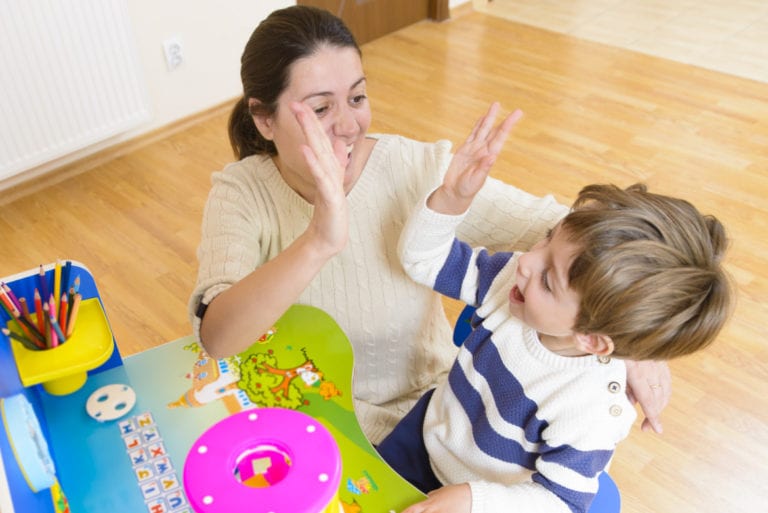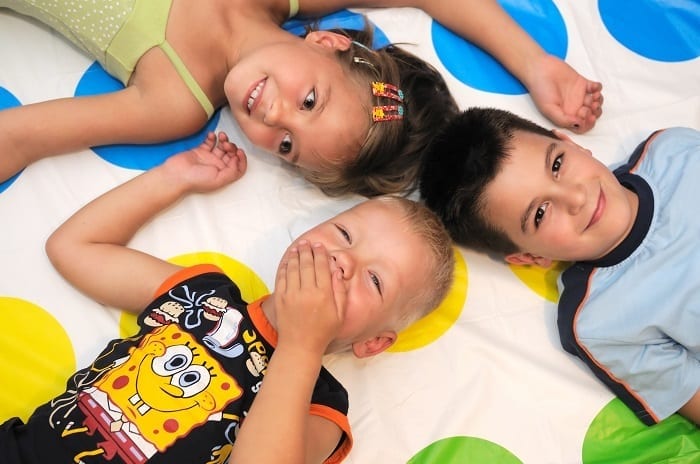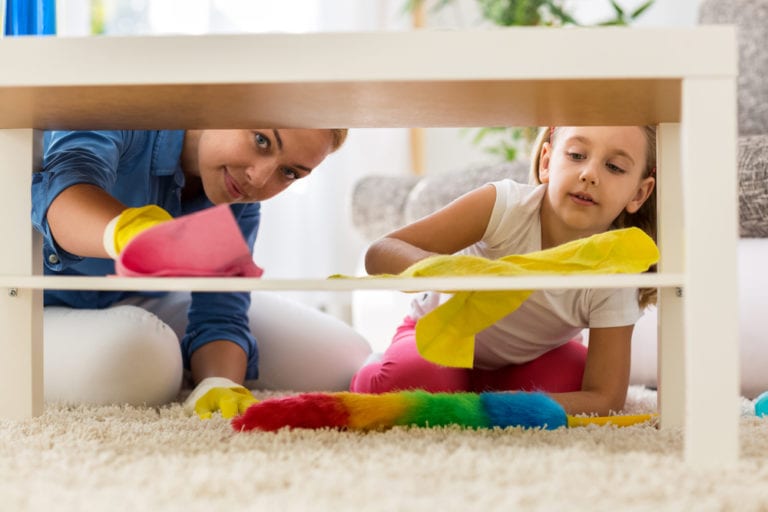5 Difficult Hurdles to Raising Responsible Adults
Disclosure: This post may contain affiliate links, meaning I may get a small commission if you decide to make a purchase through my links, at no cost to you.

5 Hurdles To Raising Responsible Adults
Your daughter strolls in the house wearing her favorite t-shirt Did I roll my eyes too loud for you. Your son yells behind the refrigerator, “Who took the last of the milk?” Every day there is an influx of door slamming, loud sighs, and snarky statements, “You just don’t get it” or “You are so not cool.”
Tween and teenage years can be a difficult time for both you and your kids in and approaching their young adult years. Kids from 9 to 12 go through puberty, social and peer pressure, as well as added responsibility.
Teens 13 to 20, struggle with the same issues in addition to finding their place outside of the family unit. They test their boundaries from staying out later than they said they would, to not picking up that pile of clothes that built up on their bedroom floor.
There are hurdles that parenting teens could hinder in the process of getting along, connecting with each other, and sharing mutual respect. You wonder how you are going to travel this road successfully in raising responsible adults.
Let’s discuss these 5 hurdles that can make any relationship stumble, but being aware of these hurdles will help you maneuver through these turbulent years where raising responsible adults is actually doable.
Parenting teens can be a long and difficult road, so be patient with yourself and don’t beat yourself up if your teen doesn’t respond the way you had hoped. Keep at it. Positive parenting is not something that we master in one conversation or interaction.
Family Meetings are a great time to establish expectations with your kids and natural consequences when these expectations are not followed.
5 Hurdles to Raising Responsible Adults

Hurdle #1 Nagging and Ordering
Even parents with the best of intentions use nagging, and ordering to get their kids to do any number of things: “Take out the garbage can”, “pick up your clothes from off the floor”.
I know the reasoning, if you don’t nag and yell, how else are they going to get it done? Right? How are we supposed to be raising responsible adults if we don’t nag them?
As you have probably already noticed, positive parenting shows that all of the nagging, ordering and demanding, is most likely followed by eye rolling, loud sighs and snarky remarks.
Why? Because there is one thing that is so obvious that sometimes we don’t even see it. What is important to us isn’t what is important to our teens. Teenager’s desires aren’t the same as our desires.
We want a clean sink, folded laundry and a tidy room. They don’t care about maintaining a neat and tidy home. They are more concerned about getting a date to the prom, studying for the geometry test, and posting that cute picture of herself on Instagram so she can get lots of likes.
It is our job to teach our kids responsibility in becoming adults, however, we need to do it without arguing, nagging and demanding. Nagging won’t get us very far, and in fact, will cause some major power struggles and a break down in communication, connection and cooperation.
So how do we do that? It starts by mutual respect. We must be respectful to them if we want that in return. Make your requests respectfully, and in a calm voice. “What is your plan for getting the dirty clothes off of your bedroom floor?”
This shows them that you have faith in them and that they do in fact have a plan. It helps them feel more respected. If they don’t have a plan, it will give them an opportunity to come up with one right there and then.
You can hold your kids accountable, for what you have asked of them, but doing it in a way that is respectful, will help them feel more empowered in making better choices.
Show appreciation for them after completed tasks, even when they are as simple as turning off the light when they leave the room or throwing a candy wrapper in the garbage. Kids and teens need to feel loved, noticed and respected. Showing gratitude more often, shows our kids that they matter and they make a difference in the positivity of the family.
Hurdle #2 Controlling and Managing

As kids head into the tweens, and teenage years, they naturally desire more independence, and freedom like staying out later with friends. We want to give them more opportunities to show more responsibility and freedom, but we are also afraid of letting go. Which is completely understandable.
Sometimes we even want to protect our kids from making the “wrong” choice or decision, so we completely take the choice out of the equation. “You cannot leave the house, because you might not be home in time for dinner.”
Show respect for your child’s need and desire for some freedom and find opportunities where he can practice his decision-making skills. Family meetings are a great time to bring up chances for independence. “When do you want to plan an activity with your friends this week?” “How would you like to schedule time for homework?” “What should we do for our family activity this week?”
Establish what behavior or outcome is required and also discuss as a family what will happen if the kids decide to test you and not follow through.
Give them an inch, then a little more each time the child succeeds. Your heart will burst seeing how responsible and independent they are becoming.
Hurdle #3 Connecting and Communicating

Your daughter walks through the door and immediately heads to her room, and shuts the door behind her. Yesterday she was picking dandelions on the grass at the park and bringing them to you in a tied up in a pink scrunchy. Or the little boy who ran up to you after preschool and showered you with kisses, now gets in the car and says nothing.
They seem like they don’t want to have anything to do with us. This may be true to some extent; our teens and tweens still however, need our guidance and direction. It is always best to give them space, but knowing that you are there for them (under their terms) when they are in trouble, or have concerns is essential to their peace of mind.
She may not be the sweet daughter she was yesterday when you ask the usual, “How was school today?” and her blaring back with, “How do you think it was?” It may crush your heart and you may feel disconnected and lost, but don’t retreat.
Seize every opportunity for connection. Always make sure your availability and presence are known. Raising responsible adults means letting them know you care. What do your kids enjoy? Maybe you can read a book they enjoyed and share some insights. How about send funny cat memes in a text message? Can you put a post it note on their mirror giving encouragement for an upcoming baseball game?
Participate in activities that your kids want to do to ensure you are making connections and each one is participating. Do your best to pay attention and be intentional with how your kids communicate with friends, family, and others.
Technology can be a great way to have connections with your kids, but when your child spends too much time, playing video games, watching tv, texting, and using social media to the point that it affects the one on one time you want with your kids, you will want to discuss limiting screen time.
Hurdle #4 Failing and Lacking

Anxiety and Depression are the leading challenges in teens and young adults today. Middle school and high school’s standards have increased in recent years. In order to get into the college of their choice, kids are expected to excel and succeed in extracurricular activities, volunteer opportunities, college application essays, testing and the list goes on. Kid are under intense pressure to succeed.
Parents have become so overly invested in their child’s success that some have even resorted to interfering with their child’s education, scholarships and even testing.
We need to take it easy on these kids. We need to have faith in our child’s abilities to push through. We can be there for our kids when they need to vent or need assistance with problem solving, time management, and relationship issues, but they are tough, and they can learn to succeed on their own.
It’s ok to let them fail. We can teach our kids that failure is not the end of the world.

“Only those who dare to fail greatly can ever achieve greatly.” —Robert F. Kennedy
If your child is failing Geometry, then let her fail the test. Your kids will receive enough pressure from society, teachers, peers, and coworkers to help them remember the time that they missed the game winning shot, or didn’t get asked to prom. It is important to be a safe place for your kids to come to where failure can be embraced, reflected upon and then conquered.
Hurdle #5 Taking It Personally

Tweens and Teens start out as angels adoring you with macaroni jewelry they made for you in kindergarten, writing poems for you in 4th grade, and thanking you for the best day ever that included shopping at the mall and root beer floats with their friends.
Then it is as if they were abducted by aliens and came back so weirdly different. They snap, they crackle and on occasion POP! Slamming doors, screaming expletives, and just plain hating your guts.
Don’t forget that kids are hormonal, they are trying to figure out how to be a better human being. Your daughter could be struggling because she just found out that the boy she likes is in love with the mean girl that sits in front of her in Biology, or your son could be nervous about basketball tryouts next week.
If they get a little short when you ask them to take out the garbage, or don’t do anything at all, your heart may ache, you may feel like you don’t have anything more to give.
Don’t take It personally. Maybe you can see things through their eyes. Tweens, teens and young adults may not know how to show it, but rest assured, your kids still need your love, acceptance and to know that they matter.
It may be challenging, but enjoy every second you have with those kiddos, because one day, those tween and teens will move out and that pile of clothes on the floor that annoyed you so, will be nothing but an empty hole in your heart.
Related Topics:
Importance in Having Family Meetings and Benefits of Them
Limiting Screen Time FREE Printable
GET FREE ACCESS TO OUR LIBRARY OF FREE PRINTABLES AND RESOURCES!
Enter Your Name and Email for FREE Access to our Library of FREE Home and Family Printables Series!





